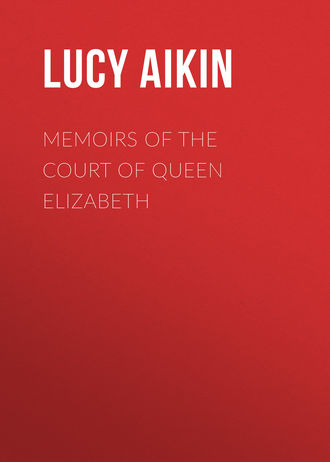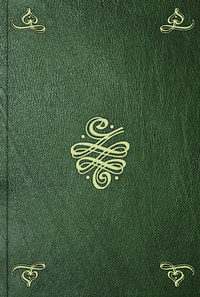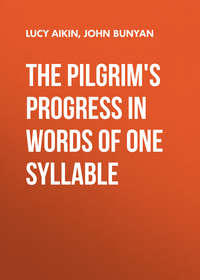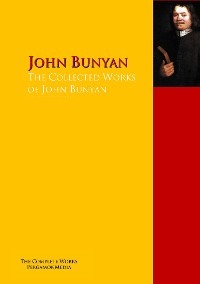 полная версия
полная версияMemoirs of the Court of Queen Elizabeth
But to return to our dramatic writers:… Thomas Kyd was the author of a tragedy entitled Jeronimo, which for the absurd horrors of its plot, and the mingled puerility and bombast of its language, was a source of perpetual ridicule to rival poets, while from a certain wild pathos combined with its imposing grandiloquence it was long a favorite with the people. The same person also translated a play by Garnier on the story of Cornelia the wife of Pompey;—a solitary instance apparently of obligation to the French theatre on the part of these founders of our national drama.
By Thomas Hughes the misfortunes of Arthur, son of Uther Pendragon, were made the subject of a tragedy performed before the queen.
Preston, to whom when a youth her majesty had granted a pension of a shilling a day in consideration of his excellent acting in the play of Palamon and Arcite, composed on the story of Cambyses king of Persia "A lamentable tragedy mixed full of pleasant mirth," which is now only remembered as having been an object of ridicule to Shakespeare.
Lilly, the author of Euphues, composed six court comedies and other pieces principally on classical subjects, but disfigured by all the barbarous affectations of style which had marked his earlier production.
Christopher Marlow, unquestionably a man of genius, however deficient in taste and judgement, astonished the world with his Tamburlain the Great, which became in a manner proverbial for its rant and extravagance: he also composed, but in a purer style and with a pathetic cast of sentiment, a drama on the subject of king Edward II., and ministered fuel to the ferocious prejudices of the age by his fiend-like portraiture of Barabas in The rich Jew of Malta. Marlow was also the author of a tragedy, in which the sublime and the grotesque were extraordinarily mingled, on the noted story of Dr. Faustus; a tale of preternatural horrors, which, after the lapse of two centuries, was again to receive a similar distinction from the pen of one of the most celebrated of German dramatists: not the only example which could be produced of a coincidence of taste between the early tragedians of the two countries.
Of the works of these and other contemporary poets, the fathers of the English theatre, some are extant in print, others have come down to us in manuscript, and of no inconsiderable portion the titles alone survive. A few have acquired an incidental value in the eyes of the curious, as having furnished the ground-work of some of the dramas of our great poet; but not one of the number can justly be said to make a part of the living literature of the country.
It was reserved for the transcendent genius of Shakespeare alone, in that infancy of our theatre when nothing proceeded from the crowd of rival dramatists but rude and abortive efforts, ridiculed by the learned and judicious of their own age and forgotten by posterity, to astonish and enchant the nation with those inimitable works which form the perpetual boast and immortal heritage of Englishmen.
By a strange kind of fatality, which excites at once our surprise and our unavailing regrets, the domestic and the literary history of this great luminary of his age are almost equally enveloped in doubt and obscurity. Even of the few particulars of his origin and early adventures which have reached us through various channels, the greater number are either imperfectly attested, or exposed to objections of different kinds which render them of little value; and respecting his theatrical life the most important circumstances still remain matter of conjecture, or at best of remote inference.
When Shakespeare first became a writer for the stage;—what was his earliest production;—whether all the pieces usually ascribed to him be really his, and whether there be any others of which he was in whole or in part the author;—what degree of assistance he either received from other dramatic writers or lent to them;—in what chronological order his acknowledged pieces ought to be arranged, and what dates should be assigned to their first representation;—are all questions on which the ingenuity and indefatigable diligence of a crowd of editors, critics and biographers have long been exerted, without producing any considerable approximation to certainty or to general agreement.
On a subject so intricate, it will suffice for the purposes of the present work to state a few of the leading facts which appear to rest on the most satisfactory authorities. William Shakespeare, who was born in 1564, settled in London about 1586 or 1587, and seems to have almost immediately adopted the profession of an actor. Yet his earliest effort in composition was not of the dramatic kind; for in 1593 he dedicated to his great patron the earl of Southampton, as "the first heir of his invention," his Venus and Adonis, a narrative poem of considerable length in the six-line stanza then popular. In the subsequent year he also inscribed to the same noble friend his Rape of Lucrece, a still longer poem of similar form in the stanza of seven lines, and containing passages of vivid description, of exquisite imagery, and of sentimental excellence, which, had he written nothing more, would have entitled him to rank on a level with the author of the Faery Queen, and far above all other contemporary poets. He likewise employed his pen occasionally in the composition of sonnets, principally devoted to love and friendship, and written perhaps in emulation of those of Spenser, who, as one of these sonnets testifies, was at this period the object of his ardent admiration.
Before the publication however of any one of these poems he must already have attained considerable note as a dramatic writer, since Robert Green, in a satirical piece printed in 1592, speaking of theatrical concerns, stigmatizes this "player" as "an absolute Joannes Factotum," and one who was "in his own conceit the only Shake-scene in a country."
The tragedy of Pericles, which was published in 1609 with the name of Shakespeare in the title-page, and of which Dryden says in one of his prologues to a first play, "Shakespeare's own muse his Pericles first bore," was probably acted in 1590, and appears to have been long popular. Romeo and Juliet was certainly an early production of his muse, and one which excited much interest, as may well be imagined, amongst the younger portion of theatrical spectators.
There is high satisfaction in observing, that the age showed itself worthy of the immortal genius whom it had produced and fostered. It is agreed on all hands that Shakespeare was beloved as a man, and admired and patronized as a poet. In the profession of an actor, indeed, his success does not appear to have been conspicuous; but the never-failing attraction of his pieces brought overflowing audiences to the Globe theatre in Southwark, of which he was enabled to become a joint proprietor. Lord Southampton is said to have once bestowed on him a munificent donation of a thousand pounds to enable him to complete a purchase; and it is probable that this nobleman might also introduce him to the notice of his beloved friend the earl of Essex. Of any particular gratuities bestowed on him by her majesty we are not informed: but there is every reason to suppose that he must have received from her on various occasions both praises and remuneration; for we are told that she caused several of his pieces to be represented before her, and that the Merry Wives of Windsor in particular owed its origin to her desire of seeing Falstaff exhibited in love.
It remains to notice the principal legal enactments of Elizabeth respecting the conduct of the theatre, some of which are remarkable. During the early part of her reign, Sunday being still regarded principally in the light of a holiday, her majesty not only selected that day, more frequently than any other, for the representation of plays at court for her own amusement, but by her license granted to Burbage in 1574 authorized the performance of them at the public theatre, on Sundays only out of the hours of prayer. Five years after, however, Gosson in his School of Abuse complains that the players, "because they are allowed to play every Sunday, make four or five Sundays at least every week." To limit this abuse, an order was issued by the privy-council in July 1591, purporting that no plays should be publicly exhibited on Thursdays, because on that day bear-baiting and similar pastimes had usually been practised; and in an injunction to the lord mayor four days after, the representation of plays on Sunday (or the Sabbath as it now began to be called among the stricter sort of people) was utterly condemned; and it was further complained that on "all other days of the week in divers places the players do use to recite their plays, to the great hurt and destruction of the game of bear-baiting, and like pastimes, which are maintained for her majesty's pleasure."
In the year 1589 her majesty thought proper to appoint commissioners to inspect all performances of writers for the stage, with full powers to reject and obliterate whatever they might esteem unmannerly, licentious, or irreverent:—a regulation which might seem to claim the applause of every friend to public decency, were not the state in which the dramas of this age have come down to posterity sufficient evidence, that to render these impressive appeals to the passions of assembled multitudes politically and not morally inoffensive, was the genuine or principal motive of this act of power.
In illustration of this remark the following passage may be quoted: "At supper" the queen "would divert herself with her friends and attendants; and if they made her no answer, she would put them upon mirth and pleasant discourse with great civility. She would then admit Tarleton, a famous comedian and pleasant talker, and other such men, to divert her with stories of the town, and the common jests and accidents. Tarleton, who was then the best comedian in England, had made a pleasant play; and when it was acting before the queen, he pointed at Raleigh, and said, 'See the knave commands the queen!' for which he was corrected by a frown from the queen: yet he had the confidence to add, that he was of too much and too intolerable a power; and going on with the same liberty, he reflected on the too great power of the earl of Leicester; which was so universally applauded by all present, that she thought fit to bear these reflections with a seeming unconcernedness. But yet she was so offended that she forbad Tarleton and all jesters from coming near her table112."
CHAPTER XXIV
FROM 1593 TO 1597A parliament.—Haughty language of the queen.—Committal of Wentworth and other members—of Morice.—His letter to lord Burleigh.—Act to retain subjects in their due obedience.—Debates on the subsidy.—Free speeches of Francis Bacon and sir E. Hobby.—Queen's speech.—Notice of Francis Bacon—of Anthony Bacon.—Connexion of the two Bacons with Essex.—Francis disappointed of preferment.—Conduct of Burleigh towards him.—Of Fulk Greville.—Reflections.—Conversion of Henry IV.—Behaviour of Elizabeth.—War in Bretagne.—Anecdote of the queen and sir C. Blount.—Affair of Dr. Lopez.—Squire's attempt on the life of the queen.—Notice of Ferdinando earl of Derby.—Letter of the queen to lord Willoughby.—Particulars of sir Walter Raleigh.—His expedition to Guiana.—Unfortunate enterprise of Drake and Hawkins.—Death of Hawkins.—Death and character of Drake.—Letters of Rowland Whyte.—Case of the earl of Hertford.—Anecdote of Essex.—Queen at the lord keeper's.—Anecdote of the queen and bishop Rudd.—Case of sir T. Arundel.
Notwithstanding all the frugal arts of Elizabeth, the state of her finances compelled her in the spring of 1593 to summon a parliament. It was four entire years since this assembly had last met: but her majesty took care to let the commons know, that the causes of offence which had then occurred were still fresh in her memory, and that her resolution to preserve her own prerogative in its rigor, and the ecclesiastical commission in all its terrors, was still inflexible.
It even appeared, that an apprehension lest her present necessities might embolden the parliament to treat her despotic mandates with a deference less profound than formerly, irritated her temper, and prompted her to assume a more haughty and menacing style than her habitual study of popularity had hitherto permitted her to employ. In answer to the three customary requests made by the speaker, for liberty of speech, freedom from arrests, and access to her person, she replied by her lord keeper, That such liberty of speech as the commons were justly entitled to,—liberty, namely, of aye and no,—she was willing to grant; but by no means a liberty for every one to speak what he listed. And if any idle heads should be found careless enough of their own safety to attempt innovations in the state, or reforms in the church, she laid her injunctions on the speaker to refuse the bills offered for such purposes till they should have been examined by those who were better qualified to judge of these matters. She promised that she would not impeach the liberty of their persons, provided they did not permit themselves to imagine that any neglect of duty would be allowed to pass unpunished under shelter of this privilege; and she engaged not to deny them access to her person on weighty affairs, and at convenient seasons, when she should have leisure from other important business of state.
But threats alone were not found sufficient to restrain all attempts on the part of the commons to exercise their known rights and fulfil their duty to the country. Peter Wentworth, a member whose courageous and independent spirit had already drawn upon him repeated manifestations of royal displeasure, presented to the lord keeper a petition, praying that the upper house would join with the lower in a supplication to the queen for fixing the succession. Elizabeth, enraged at the bare mention of a subject so offensive to her, instantly committed to the Fleet prison Wentworth, sir Thomas Bromley who had seconded him, and two other members to whom he had imparted the business; and when the house was preparing to petition her for their release, some privy-councillors dissuaded the step, as one which could only prove injurious to these gentlemen by giving additional offence to her majesty.
Soon after, James Morice, an eminent lawyer, who was attorney of the court of Wards and chancellor of the Duchy, made a motion for redress of the abuses in the bishops' courts, and especially of the monstrous ones committed under the High Commission. Several members supported the motion: but the queen, sending in wrath for the speaker, required him to deliver up to her the bill; reminded him of her strict injunctions at the opening of the sessions, and testified her extreme indignation and surprise at the boldness of the commons in intermeddling with subjects which she had expressly forbidden them to discuss. She informed him, that it lay in her power to summon parliaments and to dismiss them; and to sanction or to reject any determination of theirs; that she had at present called them together for the twofold purpose, of enacting further laws for the maintenance of religious conformity, and of providing for the national defence against Spain; and that these ought therefore to be the objects of their deliberations.
As for Morice, he was seized by a serjeant at arms in the house itself, stripped of his offices, rendered incapable of practising as a lawyer, and committed to prison, whence he soon after addressed to Burleigh the following high-minded appeal:
"Right honorable my very good lord;
"That I am no more hardly handled, I impute next unto God to your honorable good will and favor; for although I am assured that the cause I took in hand is good and honest, yet I believe that, besides your lordship and that honorable person your son, I have never an honorable friend. But no matter; for the best causes seldom find the most friends, especially having many, and those mighty, enemies.
"I see no cause in my conscience to repent me of that I have done, nor to be dismayed, although grieved, by this my restraint of liberty; for I stand for the maintenance of the honor of God and of my prince, and for the preservation of public justice and the liberties of my country against wrong and oppression; being well content, at her majesty's good pleasure and commandment, (whom I beseech God long to preserve in all princely felicity,) to suffer and abide much more. But I had thought that the judges ecclesiastical, being charged in the great council of the realm to be dishonorers of God and of her majesty, perverters of law and public justice, and wrong-doers unto the liberties and freedoms of all her majesty's subjects, by their extorted oaths, wrongful imprisonments, lawless subscription, and unjust absolutions, would rather have sought means to be cleared of this weighty accusation, than to shrowd themselves under the suppressing of the complaint and shadow of mine imprisonment.
"There is fault found with me that I, as a private person, preferred not my complaint to her majesty. Surely, my lord, your wisdom can conceive what a proper piece of work I had then made of that: The worst prison had been I think too good for me, since now (sustaining the person of a public counsellor of the realm speaking for her majesty's prerogatives, which by oath I am bound to assist and maintain) I cannot escape displeasure and restraint of liberty. Another fault, or error, is objected; in that I preferred these causes before the matters delivered from her majesty were determined. My good lord, to have stayed so long, I verily think, had been to come too late. Bills of assize of bread, shipping of fish, pleadings, and such like, may be offered and received into the house, and no offence to her majesty's royal commandment (being but as the tything of mint); but the great causes of the law and public justice may not be touched without offence. Well, my good lord, be it so; yet I hope her majesty and you of her honorable privy-council will at length thoroughly consider of these things, lest, as heretofore we prayed, From the tyranny of the bishop of Rome, good Lord deliver us, we be compelled to say, From the tyranny of the clergy of England, good Lord deliver us.
"Pardon my plain speech, I humbly beseech your honor, for it proceedeth from an upright heart and sound conscience, although in a weak and sickly body: and by God's grace, while life doth last, which I hope now, after so many cracks and crazes, will not be long, I will not be ashamed in good and lawful sort to strive for the freedom of conscience, public justice, and the liberty of my country. And you, my good lord, to whose hand the stern of this commonwealth is chiefly committed, I humbly beseech, (as I doubt not but you do,) graciously respect both me and the causes I have preferred, and be a mean to pacify and appease her majesty's displeasure conceived against me her poor, yet faithful, servant and subject." &c.113 In October following, the earl of Essex ventured to mention to her majesty this persecuted patriot amongst lawyers qualified for the post of attorney-general, when "her majesty acknowledged his gifts, but said his speaking against her in such manner as he had done, should be a bar against any preferment at her hands." He is said to have been kept for some years a prisoner in Tilbury castle; and whether he ever recovered his liberty may seem doubtful, since he died in February 1596, aged 48.
The house of commons, unacquainted as yet with its own strength, submitted without further question to regard as law the will of an imperious mistress, and passed with little opposition "An act to retain her majesty's subjects in their due obedience," which vied in cruelty with the noted Six Articles of her tyrannical father.
By this law, any person above sixteen who should refuse during a month to attend the established worship was to be imprisoned; when, should he further persist in his refusal during three months longer, he must abjure the realm; but in case of his rejecting this alternative, or returning from banishment, his offence was declared felony without benefit of clergy.
The business of supplies was next taken into consideration, and the commons voted two subsidies and four fifteenths; but this not appearing to the ministry sufficient for the exigencies of the state, the peers were induced to request a conference with the lower house for the purpose of proposing the augmentation of the grant to four subsidies and six fifteenths. The commons resented at first this interference with their acknowledged privilege of originating all money bills; but dread of the well-known consequences of offending their superiors, prevailed at length over their indignation; and first the conference, then the additional supply, was acceded to. Some debate, however, arose on the time to be allowed for the payment of so heavy an imposition; and the illustrious Francis Bacon, then member for Middlesex, enlarged upon the distresses of the people, and the danger lest the house, by this grant, should be establishing a precedent against themselves and their posterity, in a speech to which his courtly kinsman sir Robert Cecil replied with much warmth, and of which her majesty showed a resentful remembrance on his appearing soon after as a candidate for the office of attorney-general. His cousin sir Edward Hobby also, whose speeches in the former parliament had been ill-received by certain great persons, took such a part in some of the questions now at issue between the crown and the commons, as procured him an imprisonment till the end of the sessions, when he was at length liberated; "but not," as Anthony Bacon wrote to his mother, "without a notable public disgrace laid upon him by her majesty's royal censure delivered amongst other things, by herself, after my lord keeper's speech114."
In this parting harangue to her parliament, the queen, little touched by the unprecedented liberality of the supplies which it had granted her, and the passing of her favorite bill against the schismatics and recusants, animadverted in severe terms on the oppositionists, reiterated the lofty claims with which she had opened the sessions, and pronounced an eulogium on the justice and moderation of her own government. She also entered into the grounds of her quarrel with the king of Spain; showed herself undismayed by the apprehension of any thing which his once dreaded power could attempt against her; and characteristically added, in adverting to the defeat of the armada, the following energetic warning: "I am informed, that when he attempted this last invasion, some upon the sea coast forsook their towns, fled up higher into the country, and left all naked and exposed to his entrance.
But I swear unto you by God, if I knew those persons, or may know hereafter, I will make them know what it is to be fearful in so urgent a cause."
The appearance of Francis Bacon in the house of commons affords a fit occasion of tracing the previous history of this wonderful man, and of explaining his peculiar situation between the two great factions of the court and the influence exerted by this circumstance on his character and after fortunes. That early promise of his genius which in childhood attracted the admiring observation of Elizabeth herself, had been confirmed by every succeeding year. In the thirteenth of his age, an earlier period than was even then customary, he was entered, together with his elder brother Anthony, of Trinity college Cambridge. At this seat of learning he remained three years, during which, besides exhibiting his powers of memory and application by great proficiency in the ordinary studies of the place, he evinced the extraordinary precocity of his penetrating and original intellect, by forming the first sketch of a new system of philosophy in opposition to that of Aristotle.
His father, designing him for public life, now sent him to complete his education in the house of sir Amias Paulet, the queen's ambassador in France. He gained the confidence of this able and honorable man to such a degree, as to be intrusted by him with a mission to her majesty requiring secrecy and dispatch, of which he acquitted himself with great applause. Returning to France, he engaged in several excursions through its different provinces, and diligently occupied himself in the collection of facts and observations, which he afterwards threw together in a "Brief View of the State of Europe;" a work, however juvenile, which is said to exhibit much both of the peculiar spirit and of the method of its illustrious author. But the death of his father, in 1580, put an end to his travels, and cast a melancholy blight upon his opening prospects.





